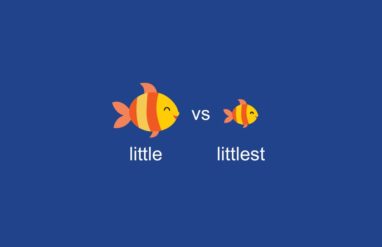Let’s be honest: desert vs. dessert is a spelling issue, not a definition issue. It’s easy to tell the difference between the Sahara and a chocolate cake (even a dry chocolate cake). But when should you use one S and when should you use two? That extra S could be the difference between mounds of sand and mounds of ice cream—and that’s an important difference!
In this article, we’ll break down the origin of and different meanings of each word and give you tips on how to remember the right spelling every time. And we’ll sort out the exception just deserts, where deserts is spelled with one S in the middle but pronounced like dessert (you might have thought otherwise, but trust us on this one—we’re a dictionary).
⚡️ Quick summary
Desert, spelled with one S, refers to a dry region. Dessert, spelled with two S’s, refers to a sweet dish eaten after a meal. Sometimes, though, desert is an entirely different word referring to what you deserve, especially in the phrase just deserts.
What is a desert?
A desert pronounced [ dez-ert ] is “a large, dry, barren region, usually having sandy or rocky soil and little or no vegetation.” You’re probably familiar with some of the world’s famous deserts, such as the Sahara in northern Africa (the largest in the world), the Kalahari in southern Africa, the Gobi in Mongolia and China, and the Mojave in California.
Although people often think of deserts as hot (and most of the best-known deserts are), they can be cold, too. The essential criterion for a place to be considered a desert is a lack of precipitation. Some extremely cold regions can sometimes be very dry. Much of Antarctica, for example, is a desert.
What else does desert mean?
Desert can also be used in a figurative way to refer to any place that’s very dry (and hot), as in Wow, I’m thirsty—it feels like a desert out here. It can also be used in a more metaphorical way to refer to a place that is isolated or barren in some way. For example, the term food desert is sometimes used to refer to a place with a lack of access to affordable, healthy food.
Desert can also be used as a verb meaning “to abandon” or “to leave a place without intending to return,” as in The settlers are planning to desert the village. The related adjective deserted means “abandoned” or “having no inhabitants,” as in The whole place was deserted. As a verb, desert can also mean to “leave one’s duty,” and a person who does this can be called a deserter.
Here’s where things get a bit tricky: when desert is used as a verb, it’s pronounced the same as dessert [ dih-zurt ].
The unrelated noun deserts in the phrase just deserts is also pronounced like desserts. More on that soon.
Where does the word desert come from?
The noun desert (meaning “a dry region”) comes from a Middle English word meaning “barren” or “dried up,” from the Old French des(s)ert, meaning “without inhabitants.” It ultimately comes from the Latin verb dēserere, which means “to abandon or forsake” and is also the root of the verb desert. This makes sense, because deserts are known for being barren and deserted.
What is dessert?
Dessert pronounced [ dih-zurt ] is “the sweet, usually last course of a meal.” We’re talking cake, pie, ice cream, pudding, fudge, fruit—you know what dessert is. Dessert is most commonly eaten after dinner, but it’s sometimes eaten after lunch, too. A sweet snack in the middle of the day? You could call that dessert, but usually when we use the word dessert, we’re referring to a sweet dish that follows a meal. After you eat a meal at a restaurant, your server might ask, “Would anyone like some dessert?” (The answer is yes.)
Where does the word dessert come from?
Dessert comes from the French desservir, meaning “to clear the table” (essentially to dis- and serve). That’s an interesting way to think of it—dessert is what you eat after the table has been cleared following a meal.
Is it just deserts or just desserts?
Things get a bit more complicated with the phrase just deserts, which means “what’s rightfully deserved,” especially as a consequence for having done something wrong. For example, you might say He won’t get away with this forever—he’ll get his just deserts.
In just deserts, deserts is pronounced the same as desserts, but is spelled with only one S in the middle. That’s because it’s related to the word deserve. Both it and deserve come from the Old French verb deservir, meaning “to deserve.”
You deserve to know even more about the phrase just deserts, so check out this article.
How to use desert vs. dessert
If you’re struggling to remember how to spell each word, think of the two S’s in dessert as standing for sugary sweets, with the one S in desert standing for sand.
When you’re using the phrase just deserts, remember that it’s spelled with one S in the middle, just like deserve.
Examples of desert and dessert used in a sentence
Here are some examples of how you might hear the words desert and dessert used in real life.
- The desert is not completely barren—many specialized animals make their home there.
- I didn’t mean to desert you when you needed me most.
- For dessert, I made an ice cream cake.
- This restaurant has the fanciest desserts—let’s order several.
- He got his just deserts when his prank backfired on him.













